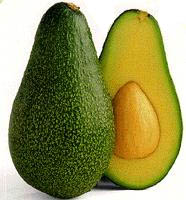Why Eating Some Kinds Of Fat Can Make You Healthier
 How many times have you heard someone, perhaps even yourself, say “I avoid eating fat”? We live in a society where people diet by limiting their consumption of particular nutrients. But how healthy is this really? And at what point could this behavior be considered disordered eating?
How many times have you heard someone, perhaps even yourself, say “I avoid eating fat”? We live in a society where people diet by limiting their consumption of particular nutrients. But how healthy is this really? And at what point could this behavior be considered disordered eating?
Avoiding Fat to Avoid Getting Fat
For about a year I avoided eating things with fat in them. I was convinced that whatever I ate would end up as part of my body, and while I was interested in building muscle, I was certainly not interested in building fat stores. So I cut the nutrient out of my everyday diet.
Whenever I had a salad I would top it with vinegar, never oil, and never dressing. I didn’t eat avocados because most of their calories were from fat. And I avoided peanut butter and whole milk like the plague.
The problem with all this is I was making drastic decisions about which foods to consume based on partial information. I didn’t want to have fat on my body, so I thought the best way to prevent that was to avoid consuming fat at all.
But that isn’t exactly the way it works.
The Different Kinds of Fat
It wasn’t until I took “Chemistry for Citizens” at my small liberal arts school that I learned about the different kinds of fat, each of which affects the body differently. The fat found in nuts and avocados is called monounsaturated fats. These are fats that your body actually needs; they are a critical part of a healthy diet. We rely on them for healthy brain development and nervous system regulation. And monounsaturated fats actually help lower ‘bad’ cholesterol and raise ‘good’ cholesterol, helping to prevent heart disease.
Not only is the fat in these foods imperative to maintaining a healthy, functional body, but these foods also contain some of the most beneficial vitamins and minerals. They are rich in anti-oxidants, vitamins, potassium, and fiber. By cutting these foods from my diet, I was depriving my body of far more than just fat.
This is the problem with restricting one’s own diet without consulting a certified nutritionist. Most of us haven’t had extensive nutritional training, so many of the decisions we make about our diet aren’t grounded in biological accuracy. We’re often unaware that by cutting one type of food from our diet we’re depriving ourselves of the many essential nutrients that food provides.
Our bodies are complex and interconnected systems, and we need to remember to treat them as such. So before we decide to ban all fats or any other nutrient from our diets, it is important to sit down with a nutritionist and make sure that we are consuming all the nutrients that our bodies require.
 Eating Disorder Self Test. Take the EAT-26 self test to see if you might have eating disorder symptoms that might require professional evaluation. All answers are confidential.
Eating Disorder Self Test. Take the EAT-26 self test to see if you might have eating disorder symptoms that might require professional evaluation. All answers are confidential.